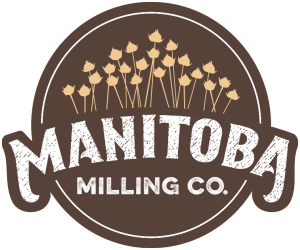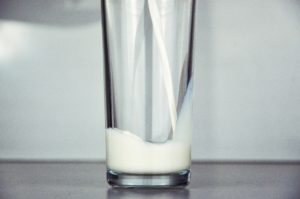Everything You Need to Know Before Ditching Dairy
Guest Post by Amanda Sauceda
Table of Contents
ToggleWhy Go Dairy-Free?
Going dairy- free isn’t always an easy choice (especially for cheese lovers), but sometimes it is the best choice for someone’s health. While a dairy allergy ranks high among reasons to choose a dairy free diet, intolerances, sensitivities, and even veganism are all close behind.
No Need to Worry
Going dairy free doesn’t have to be a scary or hard thing. While at first letting go of dairy can be disappointing, overtime it becomes less challenging and you’ll find many great alternatives.
Things to Consider
Depending on how much dairy was a part of your diet before choosing to ditch it, you may have a few concerns. Nutrient losses is the primary concern I see among my clients. Cooking and baking alternatives are the next most common concern.
Should You Be Concerned About Nutrient Losses on a Dairy-Free Diet?
If you are worried about nutrient losses, ask yourself the following questions:
- What dairy sources did I eat the most of?
- Why did I eat that source?
- When did I normally eat it?
For instance, say you usually eat yogurt for an easy on the go breakfast. You are probably eating it for the protein. You will now need to find an alternate breakfast that provides the protein you were getting from the yogurt. This could be a hardboiled egg, a protein smoothie with a scoop of flaxseed, or peanut butter toast sprinkled with flax. (Manitoba Milling Co. Smooth Whole-Milled Flaxseed provides 3 grams of protein per serving).
Calcium can also be a daunting adjustment for people who rely on milk for their calcium. Surprisingly, there are some great sources of calcium that are completely dairy free. Sardines, plant based milks, beans, kale, and tofu are good sources of calcium and they happen to be vegan too.
How to Replace Dairy in Cooking and Baking
When it comes to cooking and baking, identify the types of dairy you enjoy the most and start there to look for alternatives. Milk and cheese are the two most common forms of dairy that are used in cooking. While there are plant based cheeses, I recommend you try not to get caught up eating too much of them. They tend to be ultra processed but are okay to enjoy occasionally. Nutritional yeast is one of the best cheese substitutes out there. You can sprinkle it on top of foods or even use it to make a ‘cheese’ sauce.
Try Manitoba Milling’s NEW Flax Milk!
There are many plant based milks out there and they each have their own special qualities. Flax milk might be the new milk that you haven’t tried yet. Manitoba Milling Co.’s Flax Milk is a good substitute for cow’s milk that is not only creamy but also provides a good source of omega-3s. This flax milk contains 15 grams of flax per serving, which equates to 3310 mg of ALA Omega 3, 3 grams of dietary fiber, and 3 grams of protein. Try adding flax milk in your next smoothie with a scoop of protein powder or a a good heaping tablespoon of nut butter for an easy breakfast that will keep you full and satisfied.
Amanda Sauceda, MS, RDN, CLT is a Registered Dietitian and Certified Leap Therapist based in Long Beach, California. She specializes in food sensitivities, allergies, and digestive health. You can see more of her work at www.amandasauceda.com and connect with her on instagram @_AmandaRDN.


